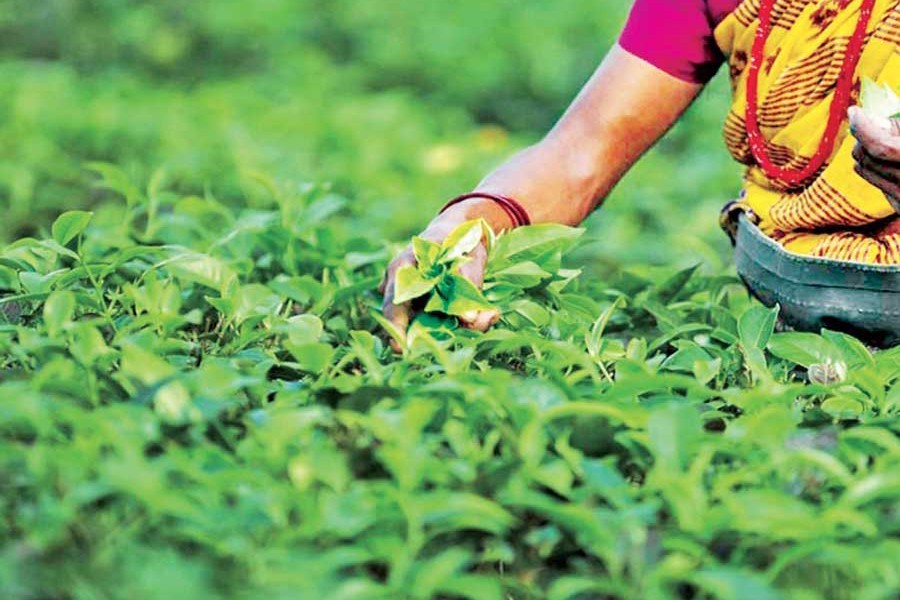As smuggling of tea into the country through border points continues to harm local producers, the ministry of commerce (MoC) has urged the cabinet division to take necessary measures to contain such illegal activities through intensifying surveillance in border areas, officials said.
It has also suggested launching mobile court drives in markets in border areas and not allowing the trading of the neighbouring country's tea in border haats, they added.
The MoC has also asked the home ministry to instruct the Border Guard Bangladesh (BGB) to take necessary action to check tea smuggling, they mentioned.
On February 02 last, the MoC wrote to the cabinet division to take necessary steps through divisional and deputy commissioners in this regard in a bid to protect the domestic tea industry.
Industry insiders said tea smuggling through border has constituted a potential threat to the business of local producers.
Smuggling of tea and other items through frontier areas has increased significantly, adversely affecting the local tea market, they added.
Nowadays, large volumes of low quality tea have been entering the country illegally through different border points, including Khagrachhari, Ramgarh, Chhagalnaiya, Chunarughat, Sylhet, Cumilla, Brahmanbaria, Satkhira, Kushtia, Jessore, Jhenaidah, Kaliganj, Sharsha, Rangpur and Panchagarh, the commerce ministry said in its letter.
As a result, tea garden owners and producers, especially small-scale tea producers, are not getting fair prices for their products, thereby posing a threat to local tea industry, it added.
The troubled tea gardeners have also demanded that the government take prompt measures to protect the local tea sector.
In recent months, the authorities have seized large volumes of tea from border belts, especially in northwestern and eastern regions of the country, said a source.
Industry people said the volume of tea being smuggled into the country would be much greater than the volume of seized tea.
Meanwhile, the Bangladesh Tea Association (BTA), a platform of tea producers, has also pleaded with the authorities to crack down on tea smugglers promptly.
Tea smuggling is grossly affecting the local industry, a garden owner said, adding that even sales of many leading brands have dropped because of it.
He observed that one of the potential sources of smuggling was through 'border haat'.
"We're in favour of border haat but not at the cost of local tea industry," he added.
A BTA source said they have already written to the commerce and home ministries and the Border Guard Bangladesh (BGB) seeking immediate action to check tea smuggling.
The smuggled tea is easily available at various stalls and bazaars in areas close to borders, said a source.
A BGB official, who declined to be named, said, "We mostly seize low-quality Indian packet tea at border points."
Global tea production stood at 5,463 million kg in 2016 and Bangladesh's share was 1.56 per cent.
It was 0.28 percentage point higher than in 2015, according to the central bank's quarterly review on tea.
According to the 2016 statistics on major tea-producing countries, China held the first position, followed by India, Kenya and Sri Lanka.
Bangladesh produced around 82.13 million kg of tea in 2018 and 96.07 million kg in 2019, the Bangladesh Tea Board (BTB) data show.
Currently, the country's tea production stood, on an average, at 1,320 kg per hectare, according to the Bangladesh Bank (BB) review.
The domestic demand for tea is rising rapidly due to urbanisation, a change in consumer taste along with population growth.
Market diversification is necessary to increase the tea production and to increase the contribution of tea to the national export earnings, the review said.
The primary importers of tea from Bangladesh were the United Arab Emirates, Pakistan, the USA, Saudi Arabia, Kuwait, Bahrain, Japan and China in January-March 2019.
Once a tea exporter, Bangladesh has recently turned into an importer of the popular commodity.
It imported tea to the tune of 6.5 million kg in the 2018 calendar year.
Currently, there are 167 tea gardens registered with the BTB.


